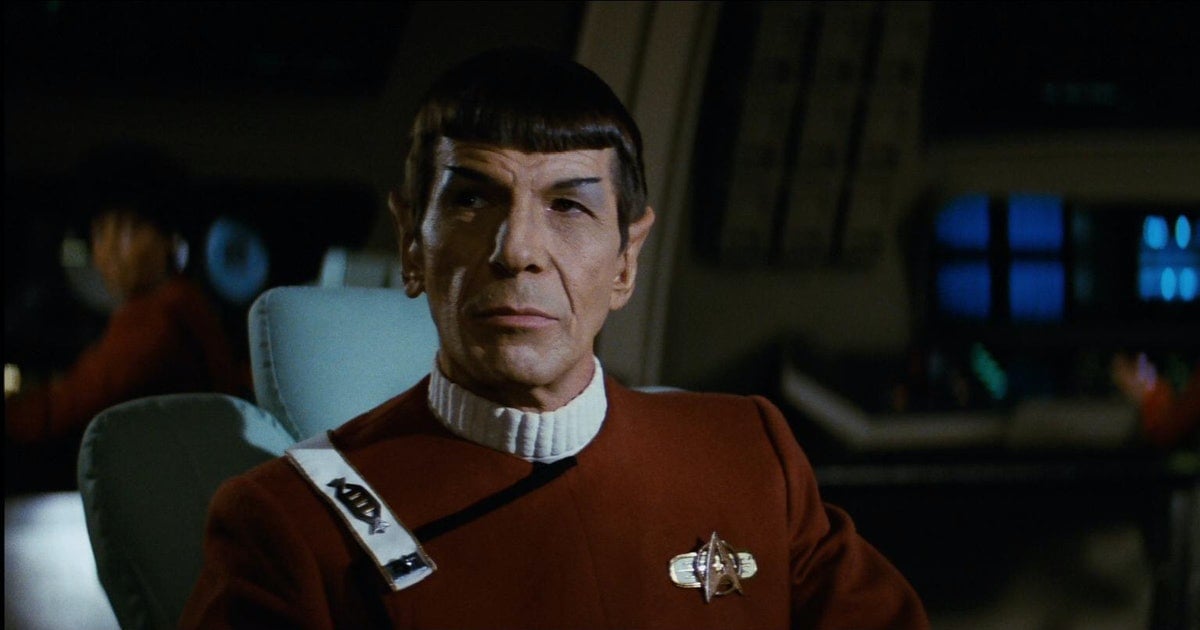Star Trek has introduced many captains over the years — legendary leaders who uphold the ideals of the United Federation of Planets. These starship commanders head to the final frontier, living up to the franchise’s mantra. To “boldly go where no one has gone before” But you don’t have to split the infinitive to be a great captain.
Some inspirational figures have donned the uniform, but not all captains are cut from the same cloth. Star Trek has put its captains through a lot during nearly six decades of utopias, dystopias, dreams, and nightmares.
As Captain Christopher Pike returns for his longest on-screen mission, we’re enjoying the most diverse set of ‘current’ captains yet. While Pike explores Strange New Worlds of the 23rd century, Captain Picard seeks new life on the cusp of the 25th century in his self-titled show. In the 32nd century, Captain Michael Burnham is boldly going where the franchise has never gone before aboard the USS Discovery.
Things have moved on from Kirk and his crew’s famous five-year mission. The Star Trek franchise is more robust than it’s been for years, and there are more captains to come, each ready to test their mettle in the final frontier. But until then, here’s our ranking of the top 10 Star Trek captains.
Engage.
10. “Go!” — Captain Gabriel Lorca, Star Trek: Discovery

We spent a fair bit of time in the company of this rogue during one of Star Trek’s finest arcs. Star Trek’s great captains have often been defined by their opposition. It was at the center of the franchise’s second feature, Star Trek II: The Wrath of Khan, and during the first series of Star Trek: Discovery, we got to see things from that opposition.
Lorca may not have been a typical captain, but in the Mirror Universe, he’d achieved great power and influence. In the captain’s chair of Discovery, he was a breath of fresh air. Why start with a bad guy? He was unethical and unrepentant, but by inverting the ideals of a Starfleet captain, Lorca showed us how it’s done.
9. “Do it!” — Kathryn Janeway, Star Trek: Voyager

Kathryn Janeway was unlucky when she took charge of the small but perfectly formed USS Voyager. The twist of Voyager, throwing the ship 70,000 light-years across the Galaxy, is probably better suited to today’s arc-driven television. In the adventure of the week 1990s, nothing in Voyager stood out as it should, limiting Janeway’s journey.
The Kazon were Klingons by another name. The Borg were admittedly impressive ratings grab. She overcame both, but troubles that should have tested the mettle of this commander, like the integration of Marquis, didn’t materialize. Instead, Janeway often captained the road trip from one troubled service station to another. There were plenty of grays to be mined from the crew’s attempts to get home, but some of Janeway’s decisions were too suspect and underexplored. And that doesn’t just mean taking on Neelix as a chef.
8. “To boldly go where no man has gone before” — Jonathan Archer, Star Trek: Enterprise

Archer was Star Trek’s ultimate pioneer. It’s a shame we discovered him late in the franchise’s golden period. The concept for Enterprise was sound, but the early days of the beautiful hunk of metal’s slight warp jump into the galaxy was a slow burner, and the crew fell a bit flat. In the chair was Archer, who had to connect the Space Race with the captains of the 23rd and 24th centuries.
Archer was dependable, reliable, and the man who could take us from A to B on the Star Trek journey. This likable ‘first captain’ never dodged action, but he’s the most diplomatic and ambassadorial of the set.
7. “The needs of the many outweigh the needs of the few” — Spock, Star Trek II: The Wrath of Khan

We didn’t get to see much of Spock as a captain, but what we did see was everything we hoped. A respected figure, guiding and mentoring the next generation of Starfleet to their finest hour. Then, when the situation called for it, he knew when to step back to make way for the right captain.
The Star Trek timeline credits Spock with command of various starships for over 100 years, ending with him captaining a small ship to help create the Kelvin timeline. As he returns to the science desk on the USS Enterprise, there’s hope we’ll see him in command again.
6. “Take us out” — James T. Kirk (Kelvin timeline), Star Trek (2009)

By Star Trek Beyond, we’d jumped to the third year of the ship’s fabled five-year mission, and Kirk was already bored. Whichever timeline he’s in, it’s in this captain’s character to think the next nebula is always purpler. But this version had to rise above his tattered fate.
There was something fierce, urgent but familiar about the young captain, who pursued his instincts and leaped up the rankings. Forging a new Kirk in the rebooted movie franchise was tough, but his on-screen career has been marred by recklessness. It cost him his command in Into Darkness and the Enterprise in Star Trek Beyond. He needs a chance to redeem himself.
5. “Let’s fly” — Michael Burnham, Star Trek: Discovery

Burnham threatened her career in ways that would make Kirk proud. Despite two years of stunning adventure in the 23rd century, the future forged a reformed Captain Burnham, even though her career is struck from the Star Trek timeline we know.
Discovery was the first show not to follow a captain but an officer on her way to earn her pins. In Leading the franchise into a new final frontier, Burnahm’s captain journey might be the greatest in the franchise.
4. “Hit it!” — Christopher Pike, Star Trek, Star Trek: Discovery, Star Trek: Strange New Worlds

Chris Pike was the first captain we met, a dashing action man who first gave Star Trek life in The Cage. When we next saw him in The Original Series, we saw his tragic fate, and that shadow has hung over him ever since.
Still, the years have been kind to the captain, often thought of as the ‘other’ Kirk. Discovery established him as a fine mix of Star Trek’s greatest captains. He combined the wisdom of Picard with the bravery of Kirk. Unlike his famous successor, he’s a measured, morally-centered farm boy. Under the shadow of his unshakeable fate, he might be the greatest embodiment of Federation qualities.
3. “If you have something to say to me, then say it” — Benjamin Sisko, Star Trek: Deep Space Nine

Benjamin Sisko took far too long to earn his commission. While he showed leadership on the Starfleet run hive of scum and villainy Deep Space Nine, he was also at the vanguard of something rare in Star Trek — the Federation’s aggressive expansion into claimed territory.
Deep Space Nine legendarily exceeded its authority in stretching the arcs and consequences for the franchise. It wouldn’t have been such an influential and challenging show without Sisko. His journey ended with ascension, but he was pushed to the limit on the way. He was fallible, emotional, and willing to consider options none else would, but he was also the only Star Trek captain to be a dedicated father. His opponents knew he’d be back to claim any baseball he left lying around.
2. “Make it so” — Jean-Luc Picard, Star Trek: The Next Generation

Signs weren’t good when Picard took over Starfleet’s flagship. The Frenchman strode through the Enterprise, awkwardly pulling on his captain’s jumpsuit. But over time, Picard banished comparisons with Kirk by combining leadership with wisdom.
The return of the captain’s Number One, away-team lead Commander Riker, looked to have split command from the action. But The Next Generation was a template for dividing qualities among a likable crew, so they all shone, which only worked because of its captain.
The academic and philosophical Picard exemplified the exploration of his opening narration. After the show ended, he developed into an action hero (Star Trek: First Contact) and rebel (Star Trek: Picard). But, it’s a credit to his brilliantly crafted persona that he remains the same inspirational Picard.
1. “Take us out of orbit” — James T. Kirk (Prime timeline), Star Trek

James Kirk remains the legendary template against whom all captains must be measured. He formed a legendary third of an ideal character dynamic in The Original Series. If Spock was the logic and Bones McCoy compassion, Kirk was decision-making in human form.
The Enterprise crew needed Kirk as much as he needed it. But despite a phenomenal record, he wasn’t an ideal fit for Starfleet. The Kelvin timeline explored the consequences of this captain without his lieutenants, but that could never beat the original. We’ll always have the definitive Kirk.
As Kirk told the hapless Captain Harriman of the USS Enterprise 1701-B, “Risk is part of that game if you want to sit in that chair.”

